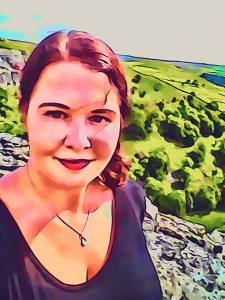204 Letter from Alexandra Witte

Dear future women tourism researchers,
Being an early-career academic myself still, writing this letter comes from a point of recent and ongoing lessons I am learning. Some of the advice I wish to give you is, therefore, somewhat aspirational on my part as well. I still hope you will find it useful in some fashion.
Do the work you love. Researching, publishing, and discussing your work should not be a chore. Find areas of research in tourism that matter to you, that you are genuinely curious about, and you will do your best work. Your best work may not always be done fast, it may not even always get the funding you were hoping for, and it may not always align with what your senior colleagues and supervisors suggest you do. Funding is great, publications are important, and we are subject to the rules and regulations of the institutions we work for. However, if we only did the research we receive some external grant for, or which responds 100% to internal departmental metrics of what is or is not worthwhile research, the wider research landscape would be much poorer for it.
Be kind to yourself. Personally, I have met many academics, especially early-career, who have incredibly high expectations of themselves. I count myself among them. Comparing myself to others at similar career stages can be helpful in determining what other opportunities I might want to look into, but it can also be highly misleading and an exercise in self-doubt. Life as an academic does not occur in a vacuum. We have family and friends, life events outside of work, worries, joys, and many other personal circumstances that frame where we can find ourselves as academics at any given time. So, I hope that you will find it possible to be kind to yourself and to know when you can push yourself further and when it might be time to slow down.
Pass on the support that you have had and the support you wish you had experienced. Modern academia can pressure people into only looking out for themselves. With constantly duelling obligations to publish, find grants, teach, grade, supervise and administer, it can be easy to slip into a ‘dog eats dog’ mentality. Even if you do not, it is always possible that someone in your surroundings does, and you end up on the receiving end of that mentality. These experiences can be frustrating, angering, and saddening. Don’t pass that on. Be part of the counter-movement and support others around you in the way you would like to be supported. More often than not, these people will themselves go on to support others. I have had the good fortune to meet and work with many people in academia who were willing to support, mentor and help me when needed, and I hope to do the same as I go on as an academic.
Love your work but don’t live to work. To me, life as an academic has been a case of never feeling like my work was done. I know this is a feeling shared by many of my colleagues. There is always that conference you could be going to, that paper you could be working on, that new research project you could join, that article you could be reviewing. All of these are important and often enjoyable parts of an academic career. As an early-career academic, I have often felt that I needed to take every single opportunity I could avail myself to, either to increase my profile, work on new research, or improve my publication record. However, at the end of the day, working every day for long hours, is not healthy mentally or physically. Sometimes, in order to be a happy (and indeed productive) academic, saying ‘no’ will be the right answer.
Respect your participants. Much research within tourism involves working with people who are in some way involved or affected by this industry and social phenomenon. In my personal experience, many of the people I have asked to become my participants have been incredibly giving in sharing their experiences, views, and desires. Sometimes, they may be uncomfortable because they may call your own attitudes or behaviours out in ways that were unanticipated. Sometimes, participants will share opinions or behaviours you disagree with. Nevertheless, your participants and their stories should be treated with respect.
I am sure the many letters found in this wonderful publication will be immensely helpful. Coming into academia as a woman at a time where we see increasing calls being made for equal opportunities, where women (and their allies) increasingly work together to make a change for the better, will hopefully be a wonderful experience for you. Take care of yourself and those around you. Be kind. Stay curious.
Good luck!
Alexandra Witte
Hong Kong Polytechnic University, Hong Kong

